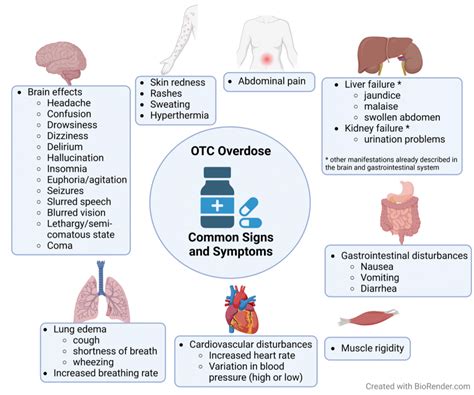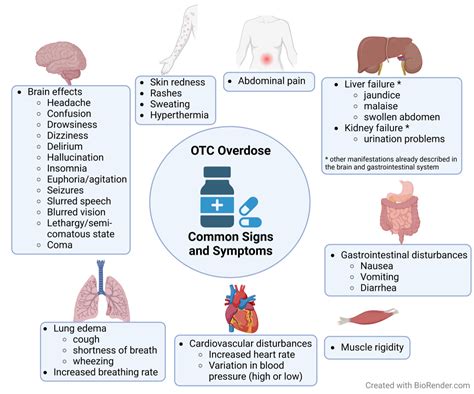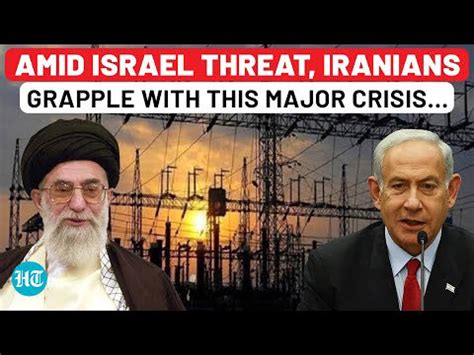
Italian Prime Minister Giorgia Meloni was caught on camera appearing to roll her eyes as French President Emmanuel Macron whispered something to her during a G7 summit event in Italy, sparking commentary and debate about the interaction’s potential implications.
The brief moment, captured during a parachute display at the summit in Apulia, Italy, quickly went viral, fueling speculation about the relationship between the two leaders, who have previously clashed on issues such as migration and economic policy. The incident has become a talking point, overshadowing some of the substantive discussions at the summit.
The video shows Macron leaning towards Meloni and whispering to her. Meloni then appears to roll her eyes and offer a terse response. While the audio is unavailable, the visual interaction has been widely interpreted as a sign of tension between the two leaders. The incident comes amid ongoing disagreements between Italy and France on several key policy areas.
The incident occurred on the sidelines of the G7 summit, where leaders from the world’s wealthiest democracies were gathered to discuss pressing global issues, including the war in Ukraine, climate change, and economic stability.
Background and Context
Giorgia Meloni, who leads Italy’s right-wing Brothers of Italy party, assumed office in October 2022. Since then, her government has pursued a nationalist agenda, prioritizing Italian interests and taking a firm stance on issues such as immigration. Emmanuel Macron, a centrist, has often advocated for greater European integration and a more liberal approach to economic and social policies.
The two leaders have had a somewhat strained relationship, with disagreements on several key issues. One major point of contention has been migration. Meloni has been critical of the EU’s migration policies and has called for stricter border controls and a crackdown on illegal immigration. Macron, while also acknowledging the challenges posed by migration, has emphasized the need for a more humane and coordinated approach.
Another area of disagreement has been economic policy. Meloni has criticized the EU’s fiscal rules and has called for greater flexibility to allow Italy to pursue its own economic priorities. Macron, on the other hand, has been a strong advocate for fiscal discipline and structural reforms.
The two leaders have also clashed on issues such as energy policy and defense spending. Meloni has pushed for greater energy independence and has opposed EU efforts to phase out fossil fuels. Macron has advocated for a transition to renewable energy sources and greater European cooperation on defense.
Details of the Incident
The incident occurred during a parachute display at the G7 summit in Apulia, Italy. Leaders were observing the performance when Macron leaned towards Meloni and whispered something to her.
While the exact content of Macron’s whisper remains unknown, the visual reaction of Meloni – the apparent eye roll – spoke volumes. The brief moment was captured by cameras and quickly spread across social media platforms, generating a flurry of commentary and speculation.
Some observers interpreted Meloni’s reaction as a sign of disrespect towards Macron, while others saw it as a reflection of the underlying tensions between the two leaders. Still others suggested that the incident was simply a momentary lapse in protocol and should not be overblown.
The lack of audio from the exchange has further fueled speculation about what was said and the meaning behind Meloni’s reaction. Some have attempted to lip-read the conversation, while others have offered their own interpretations based on the body language of the two leaders.
Reactions and Analysis
The incident has sparked a wide range of reactions from politicians, commentators, and social media users.
Some Italian politicians have defended Meloni’s reaction, arguing that she was simply expressing her disagreement with Macron’s views. Others have criticized her behavior, saying that it was unprofessional and disrespectful.
French politicians have generally refrained from commenting directly on the incident, but some have expressed concern about the potential impact on Franco-Italian relations.
Commentators have offered a variety of interpretations of the incident. Some have argued that it is a sign of the growing divide between right-wing and centrist leaders in Europe. Others have suggested that it is simply a reflection of the personalities of the two leaders.
On social media, the incident has become a meme, with users sharing jokes and memes about Meloni’s eye roll. Some have even created parody videos and images.
“It’s a moment that encapsulates the broader tensions,” said one political analyst. “Meloni represents a different vision for Europe than Macron, and this little exchange highlights that divide.”
“These moments, however small, can have a significant impact on international relations,” another analyst noted. “They can reinforce existing stereotypes and create new ones.”
Previous Tensions Between Meloni and Macron
The “eye roll” incident is not the first time that Meloni and Macron have clashed. The two leaders have had a number of public disagreements on issues such as migration, economic policy, and energy.
In November 2022, Macron criticized Italy’s decision to refuse entry to a migrant rescue ship, calling it a violation of international law. Meloni responded by accusing France of hypocrisy and said that Italy was bearing the brunt of the migration crisis.
In December 2022, Meloni criticized the EU’s fiscal rules and called for greater flexibility to allow Italy to pursue its own economic priorities. Macron defended the EU’s fiscal rules, arguing that they were necessary to maintain economic stability.
In January 2023, Meloni opposed EU efforts to phase out fossil fuels, arguing that they would harm Italy’s economy. Macron has advocated for a transition to renewable energy sources.
These previous disagreements have contributed to a sense of tension between the two leaders, which may have been reflected in the “eye roll” incident.
Potential Impact on Franco-Italian Relations
The incident has raised concerns about the potential impact on Franco-Italian relations. France and Italy are two of the largest economies in the Eurozone, and close cooperation between the two countries is essential for the stability of the European Union.
A deterioration in relations between Meloni and Macron could undermine efforts to address pressing challenges such as the war in Ukraine, climate change, and economic instability.
Some analysts have suggested that the incident could lead to a period of increased tension and mistrust between the two countries. Others have expressed hope that the two leaders will be able to put the incident behind them and work together to address common challenges.
“It’s crucial that both sides make an effort to de-escalate the situation,” said one diplomat. “Franco-Italian cooperation is too important to be derailed by a momentary lapse in protocol.”
The relationship between France and Italy has historically been complex, marked by periods of close cooperation and periods of tension. The two countries have a long history of cultural and economic exchange, but they have also competed for influence in the Mediterranean region.
In recent years, Franco-Italian relations have been strained by a number of factors, including disagreements on migration, economic policy, and energy. The rise of populist and nationalist movements in both countries has also contributed to a sense of tension.
The “eye roll” incident is just the latest chapter in this complex relationship. It remains to be seen whether it will have a lasting impact on Franco-Italian relations.
G7 Summit and Key Discussions
The G7 summit in Apulia, Italy, brought together leaders from the world’s wealthiest democracies to address a range of pressing global issues. The summit agenda included discussions on the war in Ukraine, climate change, economic stability, and food security.
The leaders reaffirmed their commitment to supporting Ukraine in its fight against Russian aggression. They also discussed ways to strengthen international cooperation on climate change and to promote sustainable economic growth.
The summit also addressed the issue of food security, with leaders pledging to increase aid to countries facing hunger and malnutrition.
The G7 leaders issued a joint statement at the conclusion of the summit, outlining their commitments on these and other issues.
Despite the substantive discussions that took place at the summit, the “eye roll” incident overshadowed some of the key policy debates. The incident highlighted the tensions and disagreements that exist between some of the G7 leaders, even as they work together to address common challenges.
The G7 is an intergovernmental political forum consisting of Canada, France, Germany, Italy, Japan, the United Kingdom and the United States. The European Union is a non-enumerated member. Together, these countries represent a significant portion of the world’s economy and population.
The G7 summit is an annual event that brings together the leaders of these countries to discuss pressing global issues and to coordinate their policies. The summit is an important opportunity for leaders to build relationships and to address common challenges.
The G7 has been criticized by some for being too exclusive and for failing to adequately address the concerns of developing countries. However, the G7 remains an important forum for international cooperation and for addressing pressing global issues.
Meloni’s Political Stance and Popularity
Giorgia Meloni’s Brothers of Italy party leads a right-wing coalition government. Her political stance is generally considered nationalist and conservative. She advocates for stricter immigration policies, the protection of traditional family values, and greater national sovereignty.
Since becoming Prime Minister, Meloni has maintained a relatively high level of popularity in Italy. Her government has focused on issues such as economic growth, job creation, and national security.
Meloni’s leadership has been praised by some for its decisiveness and its focus on Italian interests. However, her policies have also been criticized by others for being divisive and for undermining human rights.
Despite the criticisms, Meloni remains a popular figure in Italian politics. Her party is currently the largest in the Italian parliament, and she is expected to remain Prime Minister for the foreseeable future.
Macron’s Vision for Europe
Emmanuel Macron is a centrist politician who advocates for greater European integration and a more liberal approach to economic and social policies. He has been a strong proponent of the European Union and has called for closer cooperation between member states.
Macron’s vision for Europe is one of a strong and united continent that is able to compete with other global powers. He has advocated for reforms to the EU’s economic governance, its defense policy, and its immigration policies.
Macron’s leadership has been praised by some for its vision and its ambition. However, his policies have also been criticized by others for being elitist and for failing to address the concerns of ordinary citizens.
Despite the criticisms, Macron remains a powerful figure in European politics. He is widely seen as one of the most influential leaders in the EU.
The Role of Body Language in Diplomacy
The “eye roll” incident highlights the importance of body language in diplomacy. Body language can often convey messages that are not explicitly stated in words.
In this case, Meloni’s apparent eye roll was widely interpreted as a sign of disrespect towards Macron. Even though the audio of the exchange was not available, the visual reaction of Meloni spoke volumes.
Diplomats are often trained to be aware of their body language and to use it to their advantage. They are also trained to interpret the body language of others.
Body language can be a powerful tool in diplomacy, but it can also be a source of misunderstanding. It is important to be aware of the cultural differences in body language and to avoid making assumptions based on visual cues alone.
The study of body language, also known as kinesics, plays a vital role in understanding nonverbal communication, especially in high-stakes environments such as international diplomacy. Experts in nonverbal communication suggest that micro-expressions and subtle gestures can reveal underlying emotions and attitudes, even when verbal communication is carefully controlled.
The Impact of Social Media on Political Discourse
The “eye roll” incident also highlights the impact of social media on political discourse. The incident quickly went viral on social media, generating a flurry of commentary and speculation.
Social media has become an increasingly important platform for political communication. Politicians use social media to communicate directly with voters, to share their views on issues, and to respond to criticism.
Social media can be a powerful tool for political mobilization, but it can also be a source of misinformation and polarization. It is important to be critical of the information that is shared on social media and to avoid spreading false or misleading information.
The speed at which the video spread and the volume of reactions it generated underscore the amplified role social media now plays in shaping public perception of political interactions. This digital amplification can influence how these interactions are perceived and ultimately, how they impact diplomatic relations.
Long-Term Implications
The long-term implications of the “eye roll” incident remain to be seen. It is possible that the incident will have no lasting impact on Franco-Italian relations. However, it is also possible that it will contribute to a period of increased tension and mistrust between the two countries.
The incident serves as a reminder of the challenges of international diplomacy and the importance of building strong relationships between leaders. It also highlights the impact of social media on political discourse and the need to be critical of the information that is shared online.
Whether this incident will fade into the background noise of international politics or evolve into a more significant factor in the Franco-Italian relationship will depend on the actions and statements of both Meloni and Macron in the coming weeks and months. For now, it remains a compelling example of how a brief, seemingly insignificant moment can capture the world’s attention and spark a broader conversation about the dynamics of global leadership.
Frequently Asked Questions (FAQ)
1. What exactly happened between Giorgia Meloni and Emmanuel Macron at the G7 summit?
A video surfaced showing Italian Prime Minister Giorgia Meloni appearing to roll her eyes after French President Emmanuel Macron whispered something to her during a parachute display at the G7 summit in Apulia, Italy. The exact content of the whisper is unknown, but the visual reaction has sparked widespread speculation about the relationship between the two leaders.
2. Why is this “eye roll” incident considered newsworthy?
The incident is considered newsworthy because it has been interpreted as a sign of tension between Meloni and Macron, who have previously clashed on various policy issues such as migration and economic policy. The visual reaction, captured on camera and widely circulated on social media, has fueled speculation about the state of Franco-Italian relations and the broader dynamics within the G7.
3. What are some of the key policy disagreements between Meloni and Macron?
Meloni and Macron have had disagreements on issues such as:
- Migration: Meloni has advocated for stricter border controls and a crackdown on illegal immigration, while Macron has emphasized the need for a more humane and coordinated approach.
- Economic Policy: Meloni has criticized the EU’s fiscal rules and called for greater flexibility for Italy, while Macron has been a strong advocate for fiscal discipline.
- Energy Policy: Meloni has pushed for greater energy independence and has opposed EU efforts to phase out fossil fuels, while Macron has advocated for a transition to renewable energy sources.
4. Could this incident have a lasting impact on Franco-Italian relations?
It’s difficult to say definitively. The incident could be a minor blip in the relationship, or it could contribute to a period of increased tension and mistrust. Close cooperation between France and Italy is crucial for the stability of the European Union, so any deterioration in relations could have broader implications.
5. What does this incident say about the role of body language in international diplomacy?
The “eye roll” incident highlights the importance of body language in international diplomacy. Even without knowing the content of the whispered conversation, Meloni’s visual reaction conveyed a message of apparent disdain or disagreement. Body language can be a powerful tool in diplomacy, but it can also be a source of misunderstanding, especially across cultures.
6. How has Social Media Impacted the News of this Eye Roll Incident?
Social media amplified the incident. The video clip was shared and viewed countless times, igniting discussions, memes, and various interpretations. This digital virality highlights social media’s impact on shaping public perception of political events, turning a potentially minor interaction into a global spectacle.
7. What are the main goals of the G7 summit and how does this incident relate to those goals?
The G7 summit aims to address global issues such as economic stability, climate change, and security. This incident, although seemingly trivial, can undermine the summit’s goals by creating distractions and highlighting divisions among leaders. Strong, united leadership is essential for effective cooperation on these complex global challenges.
8. What political ideology does Giorgia Meloni Represent?
Giorgia Meloni leads the Brothers of Italy party and represents a nationalist and conservative political stance. She focuses on national sovereignty, stricter immigration policies, and traditional family values.
9. What is Macron’s Vision for the European Union?
Emmanuel Macron envisions a stronger, more integrated European Union capable of competing globally. He advocates for closer cooperation among member states on defense, economic governance, and immigration.
10. Does this incident change the perception of either leader domestically or internationally?
Potentially, yes. Domestically, Meloni might be seen as standing up for Italy’s interests, while Macron may face criticism for causing a diplomatic stir. Internationally, it could reinforce existing perceptions of both leaders and strain relations between France and Italy.
11. Are there any precedents of similar diplomatic incidents affecting international relations?
Yes, history is replete with instances where seemingly minor gestures or remarks have strained diplomatic ties. The impact of these events often depends on the context, the personalities involved, and the broader political landscape.
12. How are analysts interpreting the significance of this G7 event in particular?
Analysts suggest that this event underscores deeper tensions between right-leaning and centrist leaders in Europe. It highlights different visions for the future of the European Union and reflects broader ideological divides.
13. Has the Italian or French government made an official statement on this incident?
As of the latest reports, neither the Italian nor the French government has released an official statement explicitly addressing the eye-roll incident. However, officials from both sides may offer indirect comments or attempt to downplay the event in future communications.
14. How does this incident compare to past disagreements between Meloni and Macron?
This incident is consistent with past disagreements between Meloni and Macron, which have included clashes over migration policies, economic strategies, and energy agendas. It serves as another example of the ideological and policy differences that exist between the two leaders.
15. What immediate consequences, if any, are expected following this event?
In the short term, the incident is likely to intensify public and media scrutiny of interactions between Meloni and Macron. It could also lead to increased political rhetoric and possibly affect the tone of future negotiations or collaborations between France and Italy.
16. Why did the original source pick up this news?
News organizations pick up such stories for their human interest value. The event provides insight into the personal dynamics of world leaders, which humanizes them and makes political events relatable. It also offers an opportunity to discuss underlying tensions and broader political issues.
17. What might Macron’s Whispering comment been about, given the context of the summit?
Given the context of the summit agenda, Macron’s whisper could have related to ongoing discussions about Ukraine, economic policy, or climate change. It might also have been a remark related to the parachute display itself, or a more personal comment. Without specific audio, its exact content remains speculative.
18. In what way does this event exemplify the modern challenges of political leadership?
This event exemplifies the challenges of modern political leadership by showcasing how easily minor interactions can be amplified by social media and misinterpreted by the public. It highlights the need for leaders to be constantly aware of their public image and the potential for any action to become a major news story.
19. How does this scenario relate to broader power dynamics within the European Union?
This scenario reflects the broader power dynamics within the European Union, where differing political ideologies and national interests often lead to tensions among member states. It highlights the challenges of maintaining unity and cooperation in the face of diverse political agendas.
20. Given Meloni’s conservative leanings, how might her constituents react to this?
Meloni’s conservative constituents might interpret her reaction as a sign of strength and independence, seeing it as a refusal to be dominated or influenced by Macron’s more centrist views. They may applaud her for prioritizing Italian interests and standing up to perceived foreign pressure.









